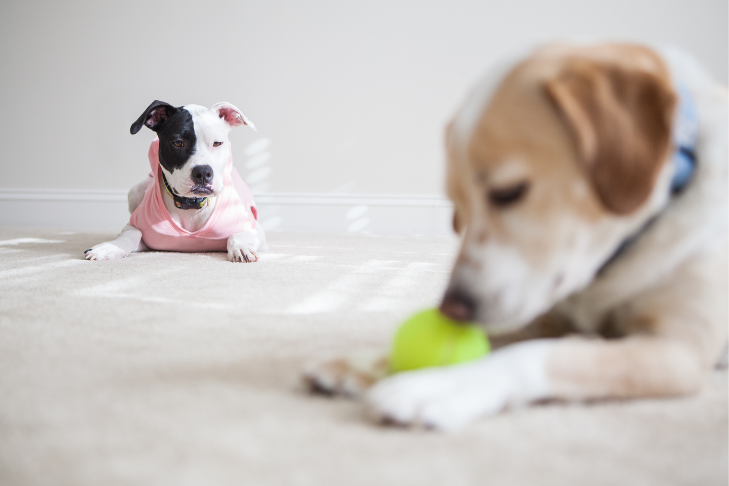Why Do Pets Experience Jealousy?

As pet parents, we often find ourselves amused and sometimes puzzled by the emotions displayed by our beloved furry companions. While joy, excitement, and loyalty are emotions we readily associate with our pets, there’s another emotion that might surprise you – jealousy. Yes, pets can indeed experience jealousy, and understanding this complex emotion can deepen the bond between you and your four-legged friend.
The Nature of Pet Jealousy:
Pet jealousy, like in humans, stems from a sense of rivalry or competition. It often arises when pets perceive a threat to their status or resources, such as attention, treats, or even territory. While dogs and cats may express jealousy in different ways, the underlying emotion is quite similar.
Signs of Pet Jealousy:
Attention-Seeking Behavior
- Pets, particularly dogs, may exhibit attention-seeking behavior when they feel jealous. This can include pushing their way between you and another pet, nudging you, or vocalizing to grab your attention.
Aggression or Clinginess
- Jealousy can also manifest as aggression or clinginess. A pet might become possessive, guarding their favorite toys or even exhibiting signs of aggression towards another pet they perceive as a threat.
Changes in Body Language
- Pay attention to your pet’s body language. Signs such as raised hackles, a tense body posture, or a fixed gaze can indicate feelings of jealousy or insecurity.
Changes in Appetite or Sleeping Patterns
- Some pets may display jealousy and stress through changes in their routine, like refusing to eat or experiencing disruptions in their sleeping patterns.

Understanding Triggers:
Identifying the triggers for jealousy in pets is crucial for managing and addressing these emotions. Common triggers include:
Attention Imbalance
- Unequal distribution of attention among pets can lead to jealousy. Ensure you spend quality time with each pet to avoid feelings of neglect.
New Additions to the Family
- The introduction of a new pet, a baby, or even a new human member can trigger jealousy. Gradual introductions and positive reinforcement can help ease these transitions.
Resource Competition
- Pets may feel jealous when it comes to sharing resources like food, toys, or even your lap. Provide separate spaces and ample resources to avoid conflicts.

Addressing Pet Jealousy:
Equal Attention and Affection
- Make a conscious effort to spend quality time with each pet. This could include individual play sessions, walks, or cuddle time to reinforce the bond with each furry family member.
Positive Reinforcement
- Reward good behavior with chews and praise. Pet Releaf’s Edibites are a great tool to help pets associate positive experiences with certain situations, reducing jealousy-induced behaviors. These CBD chews not only serve as a tasty reward for pets but also simultaneously provide calming and overall mental and physical support.
Enrichment Activities
- Keep your pets engaged with stimulating activities and toys. This not only prevents boredom but also reduces the likelihood of jealousy by providing an outlet for their energy.
Recognizing and addressing pet jealousy is key to maintaining a happy home. By understanding the triggers and implementing positive reinforcement strategies, you can create an environment where jealousy takes a back seat, allowing your pets to thrive.


